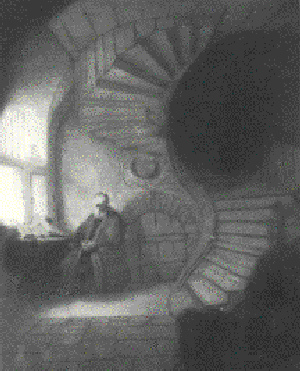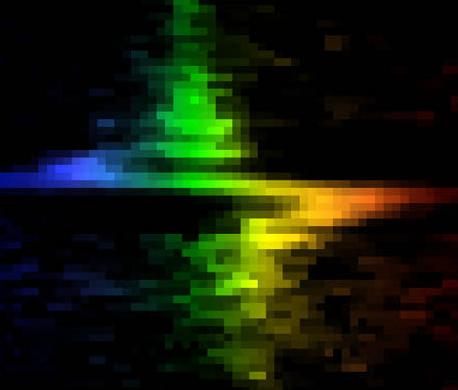 THE SUPER-HIGHWAY OF HISTORY !
THE SUPER-HIGHWAY OF HISTORY ! 
Atom - A 2400 Years Old Term
A detail from the fresco
"The School of Athens" by Raphael
Two Examples
These are two examples given by M. L. von Franz in the book Man and His Symbols chapter Science and the Unconscious, the Swedish translation:
 The concept of a particle,
Atom,
was brought about by Leukippos a Greek philosopher
and his follower
Demokritos who lived in the
fourth century B.C.. Atom means "non-dividable unit".
Although the atom has been shown to be dividable,the concept of particles
(in addition to the concept of waves), is still valid today in modern microphysics.
The concept of a particle,
Atom,
was brought about by Leukippos a Greek philosopher
and his follower
Demokritos who lived in the
fourth century B.C.. Atom means "non-dividable unit".
Although the atom has been shown to be dividable,the concept of particles
(in addition to the concept of waves), is still valid today in modern microphysics.
 The concept of Energy
and its relation to force and movement has been mentioned by early Greeks, and
developed by later philosophers. They "imagined" the existence of a life-giving
tension, Tonos,
that supports all things and sets them into movement.
von Franz comments the above:
The concept of Energy
and its relation to force and movement has been mentioned by early Greeks, and
developed by later philosophers. They "imagined" the existence of a life-giving
tension, Tonos,
that supports all things and sets them into movement.
von Franz comments the above:
This half-mythological seed to our modern concept of energy, in addition to other concepts of physics, such as Space, Time, Matter, Continuum (Field), Particle etc. were all intuitive ideas, semi-mythological and arketypical concepts, that have been founded by ancient Greeks, and which today became more exact, and are expressed in mathematical terms.
According to Fime Theory this Two-Way Perpetuation of Knowledge can be explained by the dynamic interrelation between Time and Fime. Here it is useful to repeat the sentence which has been presented on the previous page:
The above does not mean literally that our ancestors knew in the Past "all" what we know at Present, and what mankind is going to discover in the Future, but it rather demonstrates an important concept about life and time:
Time being percepted only by living objects has this perception interrelated throughout the time itself. Fime Theory explains, among other things, how this process does operate in terms of physics.In other words, the Super-Highway of History is only possible in at least a 5D Universe.

Rembrandt's "Philosopher With an Open Book", 1633.
The spiral staircase is wonderfully associated with contemplation.






